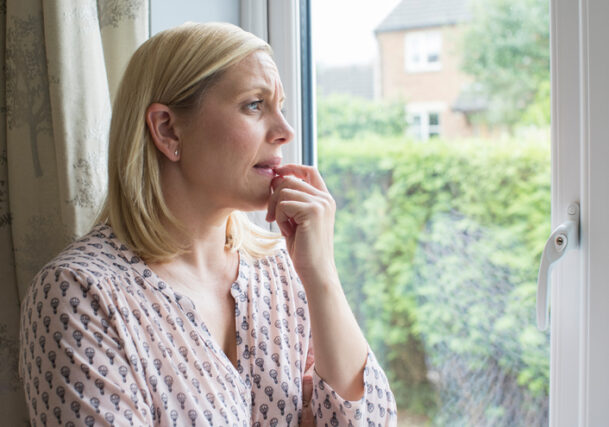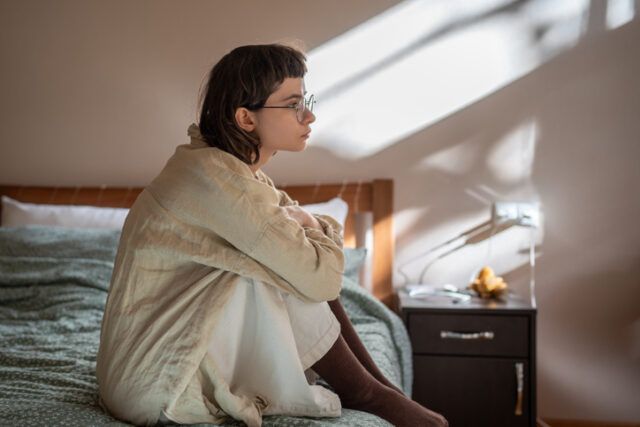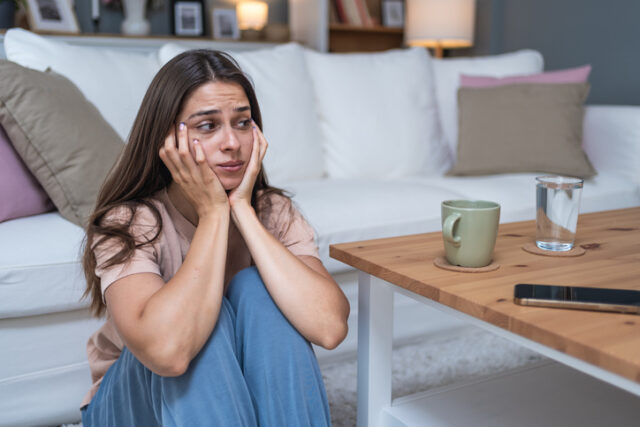Loneliness can creep up on you even when surrounded by people.

It’s that nagging feeling of emptiness, and of not truly connecting or belonging. Sometimes, we might be so good at masking our loneliness that we even fool ourselves. But deep down, there are subtle signs that reveal the truth.
1. You find yourself scrolling through social media for hours, envying other people’s seemingly perfect lives.

While social media can be a great way to stay connected, it can also be a breeding ground for comparison and feelings of inadequacy. If you find yourself constantly scrolling through other people’s highlight reels, feeling a pang of envy or longing, it might be a sign that you’re craving deeper connections in your own life.
2. You often feel like you’re on the outside looking in, even in social settings.

You might be surrounded by people, but still feel a sense of isolation and detachment. You struggle to fully engage in conversations or activities, feeling like you don’t truly belong. This feeling of being an outsider can be a painful reminder of your loneliness, even when you’re physically present with other people.
3. You find yourself talking to inanimate objects or pets more than you talk to people.

When human interaction is lacking, we sometimes turn to other sources of comfort and companionship. If you find yourself chatting away to your houseplants, your cat, or even the TV, it might be a sign that you’re craving more meaningful conversations with other people.
4. You cancel plans at the last minute, even when you have nothing else to do.
 Source: Unsplash
Source: Unsplash Socialising can feel exhausting when you’re feeling lonely. You might agree to plans out of a sense of obligation or fear of missing out, only to cancel at the last minute because the thought of interacting with people feels overwhelming. This avoidance behaviour can be a way of protecting yourself from potential rejection or disappointment.
5. You fill your free time with distractions to avoid being alone with your thoughts.

Binge-watching TV shows, scrolling through social media, or constantly occupying yourself with busy work can be a way to avoid confronting feelings of loneliness. If you find it hard to simply be alone with your thoughts, it might be a sign that you’re trying to numb the pain of disconnection.
6. You feel a sense of emptiness or dissatisfaction, even when things are going well in your life.

Loneliness can persist even when you have a successful career, a comfortable home, and supportive friends. It’s a deeper emotional need that can’t always be filled by external achievements or material possessions. If you find yourself feeling unfulfilled despite having everything you thought you wanted, it might be time to address your emotional needs.
7. You struggle to open up to people and express your true feelings.
 Source: Unsplash
Source: Unsplash Fear of vulnerability and rejection can lead to emotional isolation. If you find it hard to let people in and share your true self, it can create a barrier to intimacy and connection.
8. You feel a sense of nostalgia for past relationships or friendships, even if they weren’t perfect.

When you’re lonely, it’s easy to romanticise the past and long for the comfort and familiarity of old connections. Even if those relationships weren’t ideal, they might seem more appealing in hindsight than the emptiness of the present. It’s important to focus on building new, healthy relationships rather than dwelling on the past.
9. You have trouble sleeping or experience changes in your appetite.

Loneliness can take a toll on your physical health as well as your emotional wellness. You might find it hard to fall asleep or stay asleep, or you might experience changes in your appetite, either eating more or less than usual. These physical symptoms can be a sign that your emotional needs aren’t being met.
10. You feel a sense of relief when plans are cancelled, or you have an excuse to stay home.

While socialising can be fun, it can also be a source of anxiety when you’re feeling lonely. If you find yourself feeling relieved when plans fall through, or you have a legitimate reason to stay in, it might be a sign that you’re avoiding social situations because they trigger feelings of loneliness or inadequacy.
11. You’re always comparing yourself to other people and feeling inadequate.

Social comparison is a common trap, especially thanks to social media. If you’re constantly measuring yourself against other people and feeling like you’re falling short, it can make those feelings of loneliness and isolation a million times worse. Everyone’s journey is different!
12. You find it hard to ask for help or support, even when you need it.

Pride and fear of burdening people can keep you from reaching out for help, even when you’re truly struggling. This can lead to a sense of isolation and make it hard to feel better. Remember, everyone needs help sometimes, and asking for it is a sign of strength, not weakness.
13. You feel a sense of numbness or detachment from your emotions.

Chronic loneliness can lead to emotional numbness, which is a way of protecting yourself from further pain and disappointment. If you find yourself feeling disconnected from your emotions or struggling to experience joy or excitement, it might be a sign that you need to address your underlying loneliness.
14. You’re drawn to sad or depressing music, films, or books.

When you’re feeling lonely, you might find solace in art that reflects your own emotions. Sad songs, depressing films, or books about heartbreak can resonate with your own experiences and provide a sense of validation. While it’s okay to indulge in these forms of expression, it’s important to balance them with more positive media, too.
15. You struggle to maintain eye contact or have deep conversations.

Loneliness can destroy your confidence and make socialising feel awkward or uncomfortable. You end up avoiding eye contact, struggling to find the right words, or feeling self-conscious about your body language. Practising social skills and spending time in more supportive environments can help you rebuild your confidence and connect with people a bit more easily.
16. You feel a sense of dread or anxiety when you’re alone for extended periods of time.

While introverts generally enjoy being on their own, chronic loneliness can turn alone time into a source of anxiety and fear. If the thought of being alone fills you with dread, it might be a sign that you need to address your underlying feelings of isolation.
17. You find yourself idealising potential romantic partners or friendships.

When you’re lonely, it’s easy to project your desires and expectations onto other people, hoping they’ll fill the void in your life. This can lead to unrealistic expectations and disappointment when those relationships don’t live up to your idealised image. Stop looking for a saviour or perfect match — you don’t need either.
18. You feel a sense of shame or stigma about your loneliness.

Loneliness is a common human experience, but it can also be a source of shame and stigma. You might feel like you’re the only one struggling, or that there’s something wrong with you for feeling this way. Embrace your vulnerability, and don’t hesitate to reach out to people and connect.
19. You don’t know how to set boundaries and often find yourself in one-sided relationships.

Being terrified of rejection or abandonment can make you neglect your own needs and boundaries to keep the people in your life there. As a result, you end up with some unhealthy dynamics that leave you feeling drained and unfulfilled. You have to start looking after yourself!
20. You often feel like you’re not good enough or that you don’t deserve love and connection.

Loneliness can do a real number on your self-worth. You start to believe that you’re not interesting or loveable enough to have friends or find a partner, but that’s just not true. Challenge your negative thoughts and remind yourself of just how worthy of good things you truly are.




